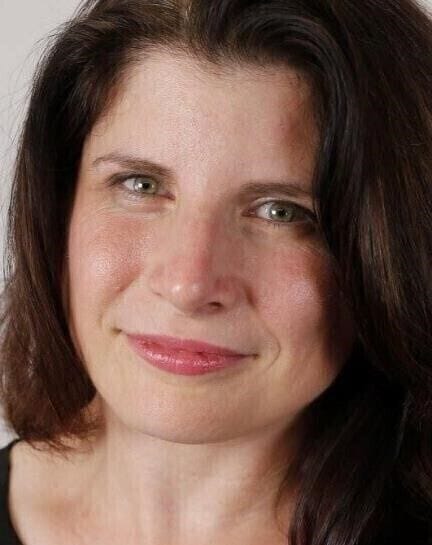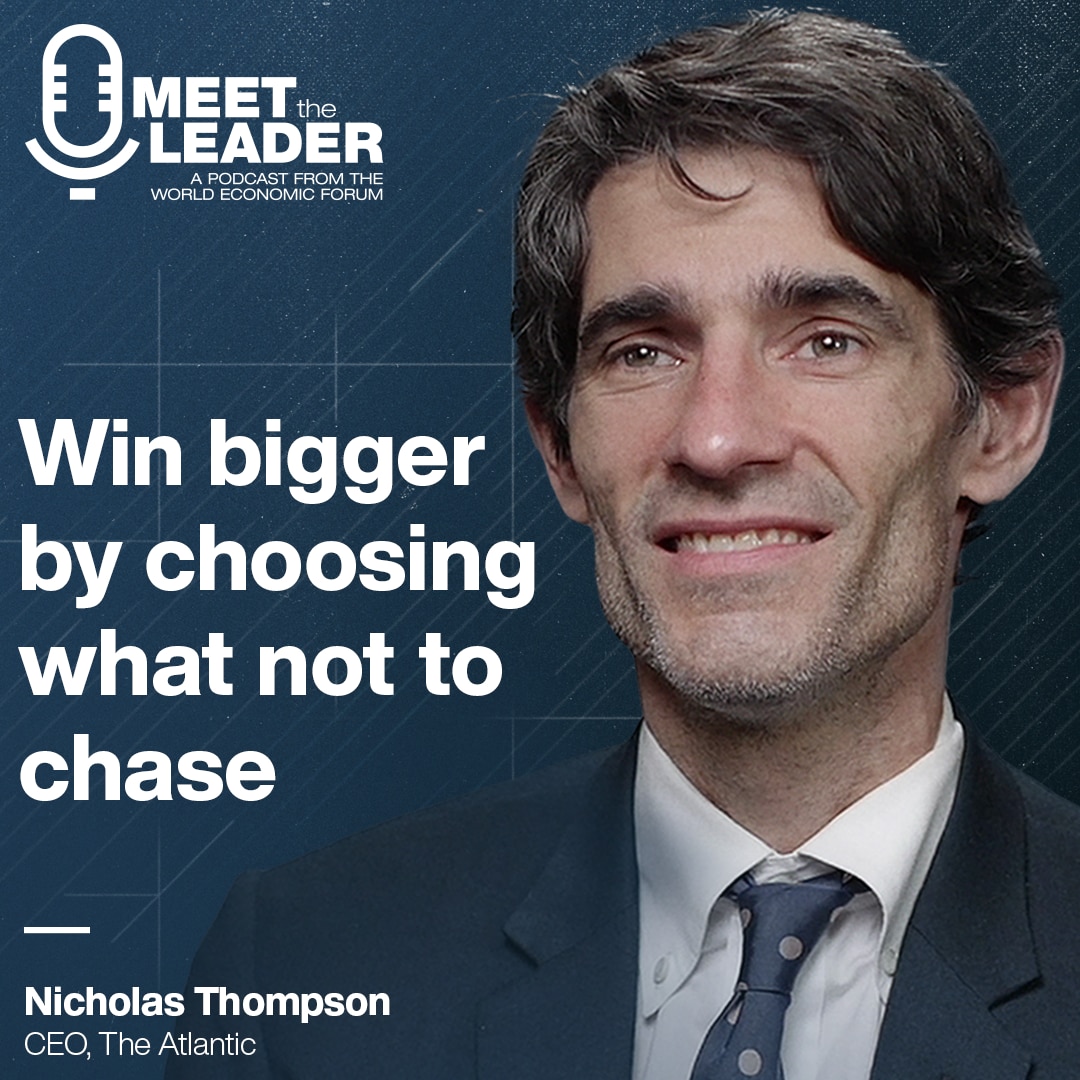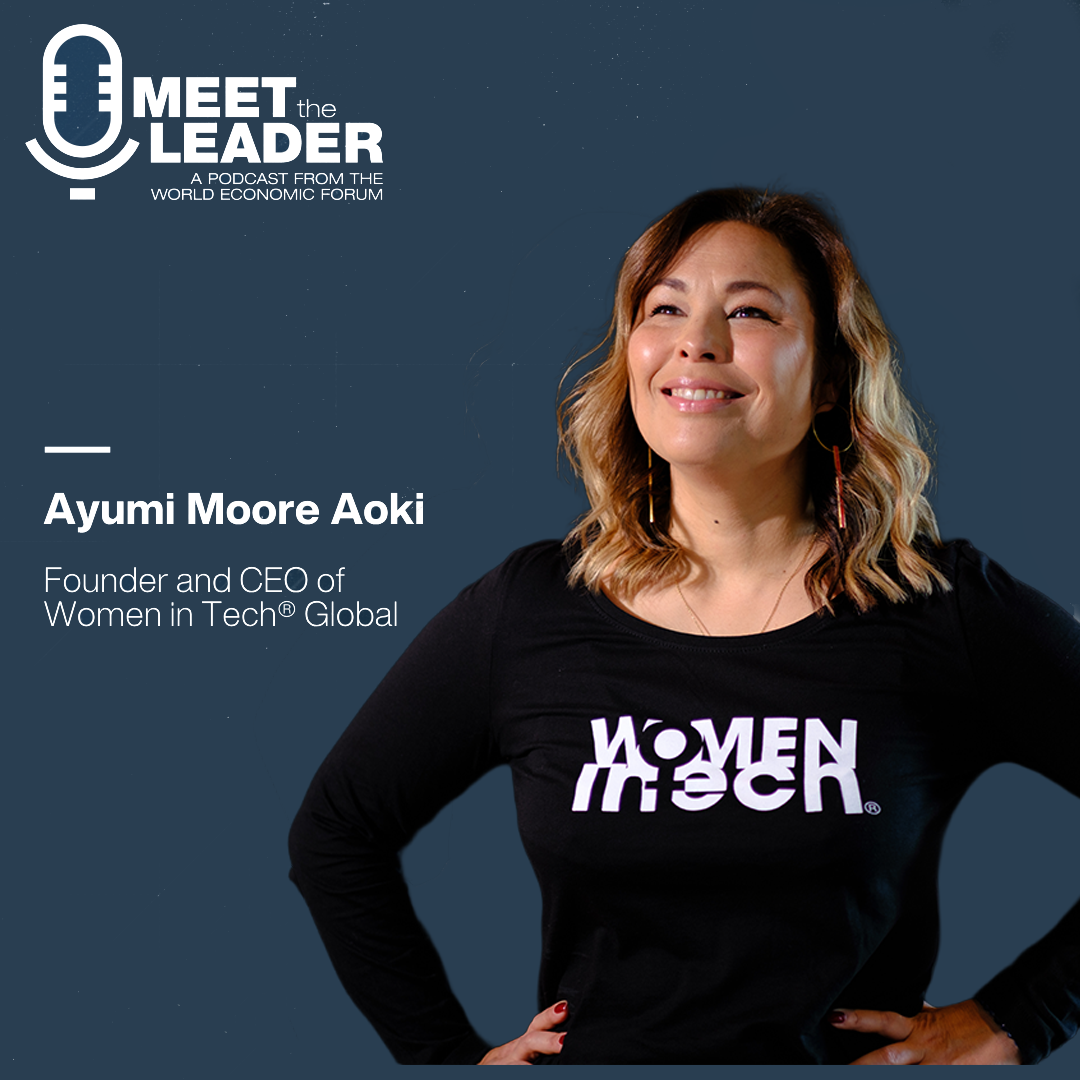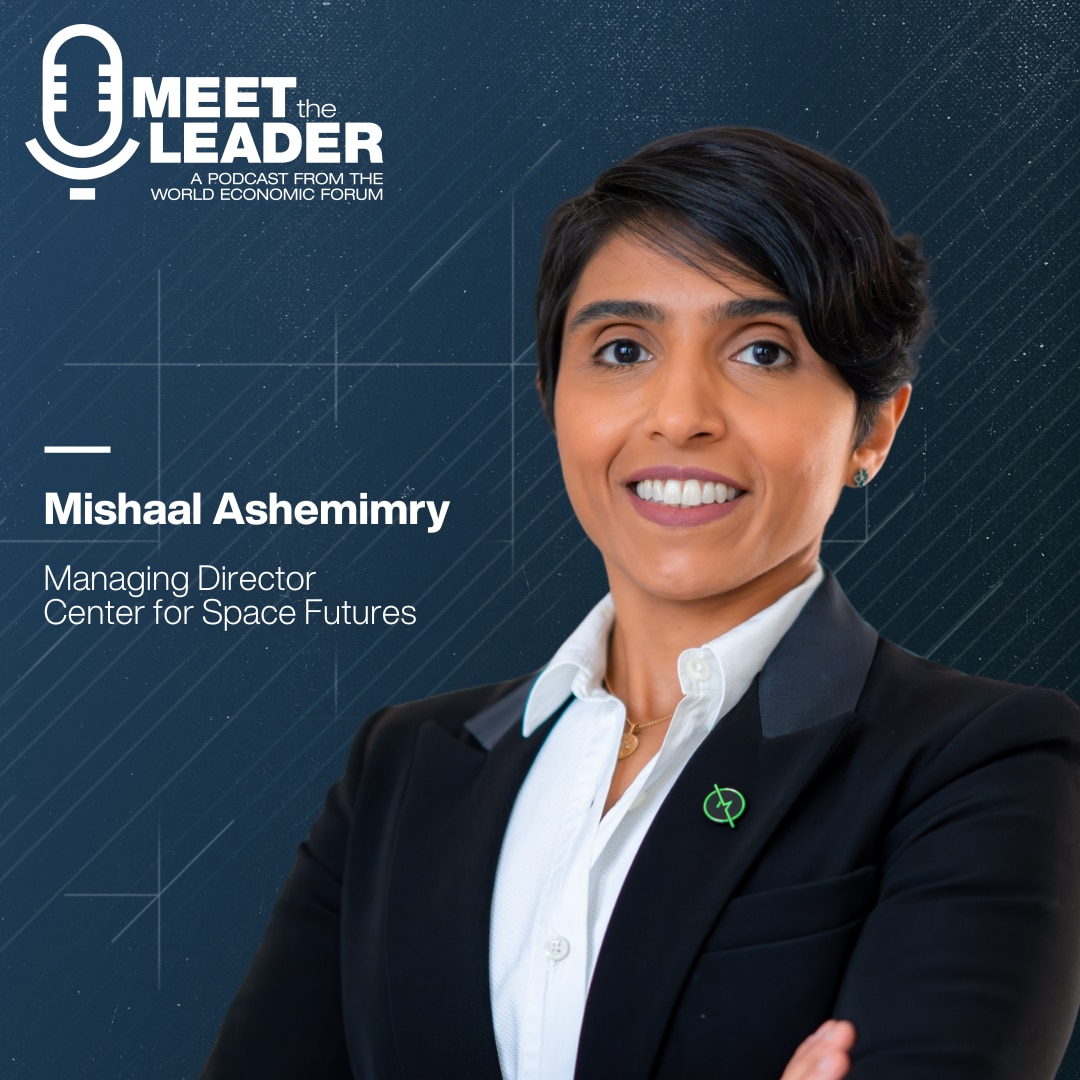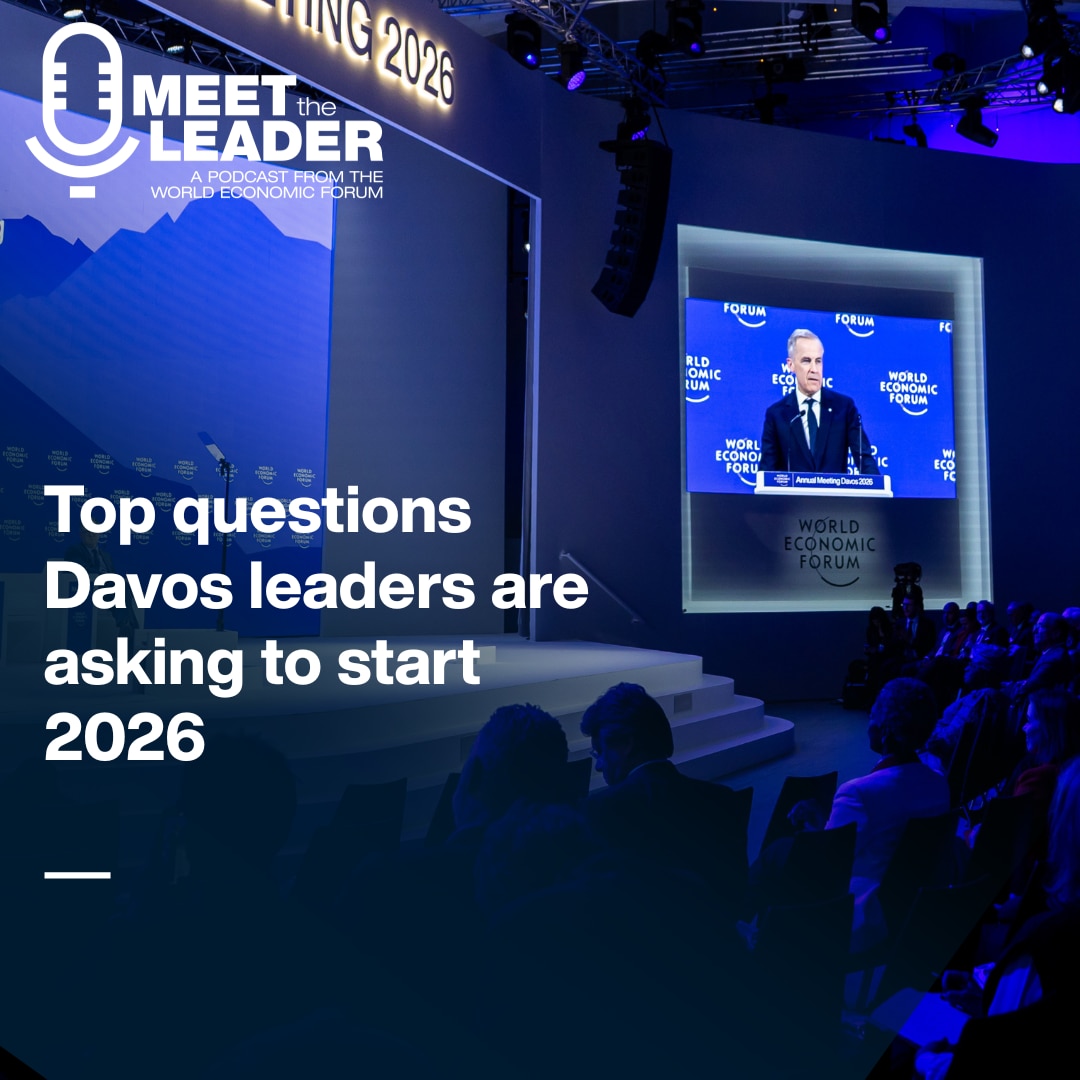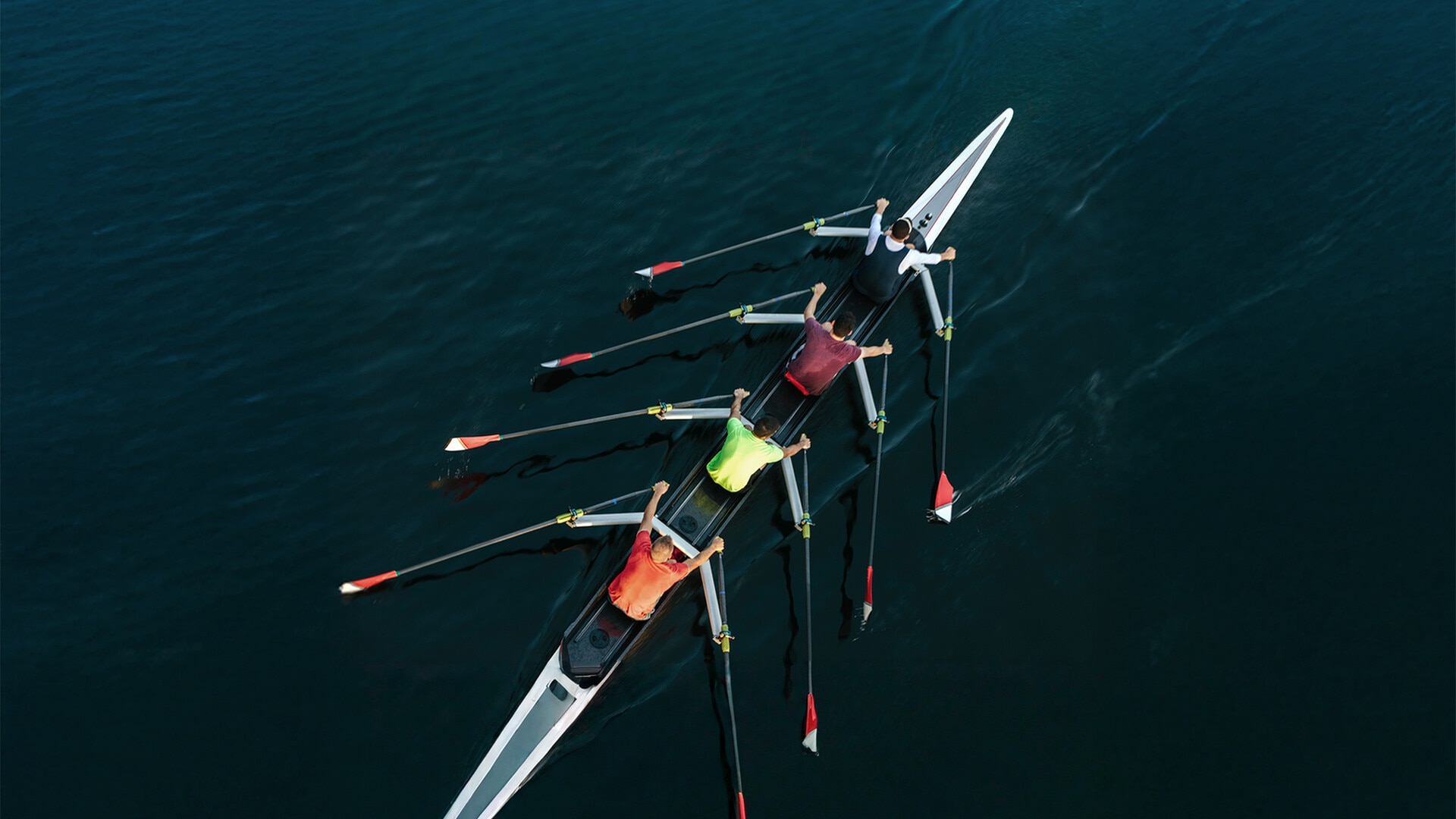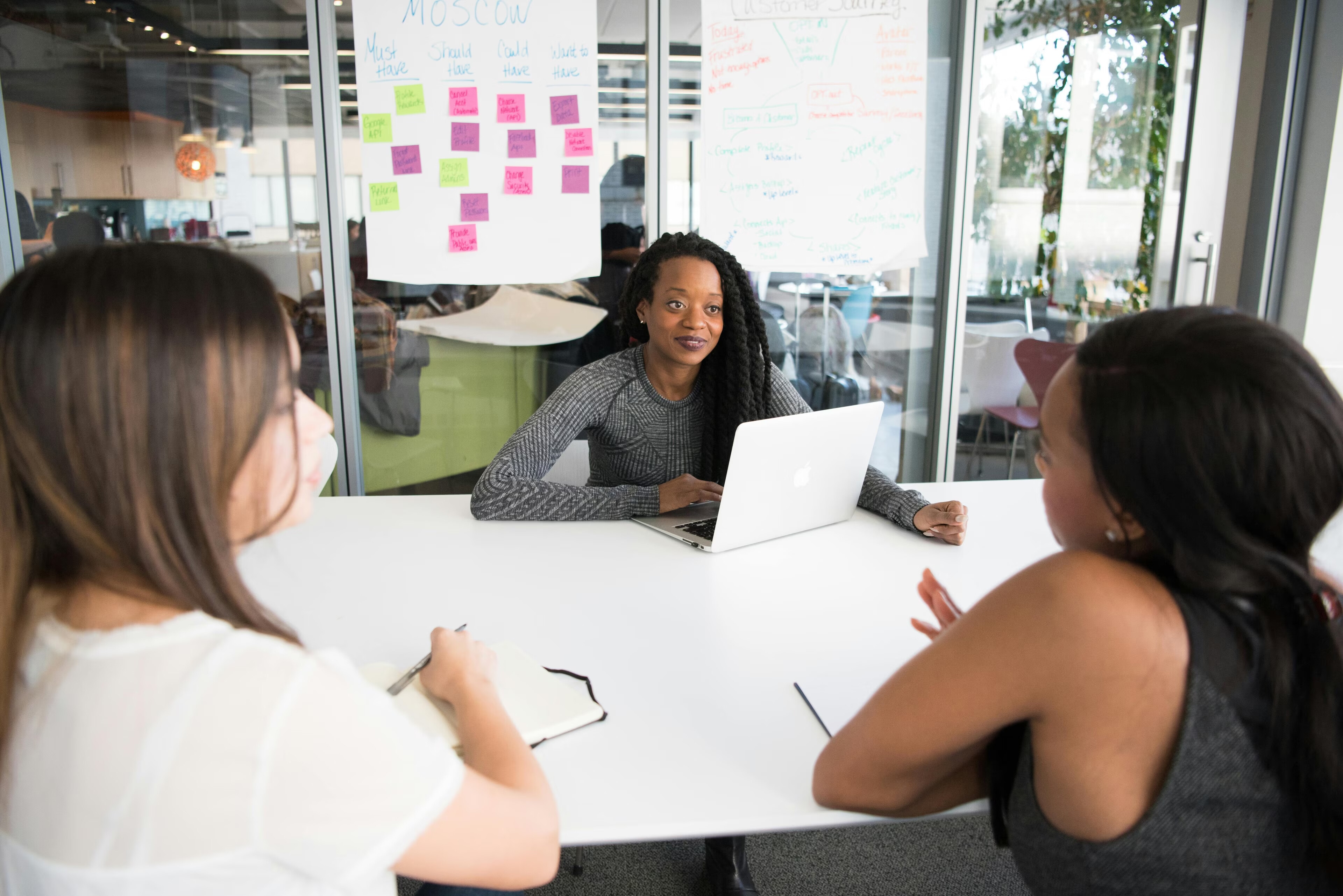Microsoft’s Brad Smith on tech blindspots and the key lesson that changed how he leads
ポッドキャスト・トランスクリプト
Linda Lacina, Meet The Leader Welcome to Meet the Leader, the podcast where top leaders share how they are tackling the world's toughest challenges. In today's episode, we talk to Brad Smith of Microsoft about what's needed to sidestep tech blind spots.
Subscribe to Meet the Leader on Apple, Spotify, and wherever you get your favorite podcasts. And please don't forget to rate and review us. I'm Linda Lacina from the World Economic Forum and this is Meet the Leader.
Brad Smith, Microsoft And that was not just the turning point that brought me into the company. It was a complete turning point in how I think about everything.
Linda Lacina, Meet The Leader AI is the buzzy innovation of our time. And when I met with Brad Smith this year in Davos. It was certainly the hot topic of conversation. But with that AI buzz comes some pretty big nagging questions. We'll use it the right way. The ethical way. Will a big tech shift move some people forward and most people back?
Brad Smith is well prepared for those questions. He is a 30 year Microsoft veteran and in his role as Microsoft's vice chair and president he leads a team of 2000 people in business, legal and corporate affairs all on the intersection between tech and society.
He also recently published a book, Tools and Weapons, and runs a podcast of the very same name exploring the impact of key technologies and how they've been used both to help and to harm. The stories that he puts forward have a lot to teach us about what we overlook, what we need to get in place, and what dangers we can get ahead of when we're exploring new tech.
He'll talk about all of that, but he'll also share a little bit about how he has changed as a leader. Why he refused to even take one job in 1986 unless there was a computer on his desk. He'll share the lessons that we can take from those moments, but first, he'll get us started with more on the concept of tools and weapons.
Brad Smith, Microsoft Well, I had this wonderful opportunity together with my coauthor at Microsoft, Carolyn Brown, to write this book, Tools and Weapons, and the title in some ways says it all. Technology is always both a tool and a weapon. The more powerful the tool, the more formidable the weapon. Software. Digital technology, artificial intelligence all falls into that category. And what this means is that we have to really focus on how to make the most of the tool, but we also have to manage the risks, and we need to do that in collaboration with the tech sector and government increasingly working together.
Linda Lacina, Meet The Leader Your book, it's organized by six principles. What's maybe most top of mind for you this year?
Brad Smith, Microsoft This year at Davos it seems like there's AI everywhere. You walk down the street, you see all of these buildings, you walk into panels. Really this theme of tools and weapons has become an integral part of all of the conversations about AI. And that's a good thing.
In our book, we advocate, as Microsoft has as a company, a principled approach. It is grounded in six principles: to avoid bias, to protect safety and security, protect privacy, promote inclusion, transparency, and perhaps most importantly, ensure that this technology remains accountable to people and that the people who create and operate it remain accountable to society.
And I think 2024 is a year where the use of AI is spreading very quickly, very broadly. And as it does, these principles really have very concrete practical importance for everybody who's creating AI-based applications or using them at work or in their personal life.
Linda Lacina, Meet The Leader Your book and your podcast, you go through all kinds of different solutions. You talk to lots of different change makers and solution makers. Are there any sort of either little-known solutions or even frameworks that you think could be useful to how we're solving problems now?
Brad Smith, Microsoft I think today, so often if you want to move fast and do something that will make a difference, you really do need multi-stakeholder efforts. We've seen this in the Christchurch Call, for example, which was put together in 2019, in the wake of that massacre. And it changed the way the tech sector works together to ensure that videos and live streaming of mass shootings don't permeate spread across the internet. And we saw that before with the Paris call to focus on cyber security. I think that is a blueprint, and it's a blueprint that we're going to need to use in other instances, for example, to protect elections from deepfakes. The more we can bring people together, agree on some concrete steps we can take quickly, I think the more we can build the muscle that's actually needed to keep technology on the right side of the road.
If you want to move fast and do something that will make a difference, you really do need multi-stakeholder efforts.
”Linda Lacina, Meet The Leader Are there tech blind spots that nobody's talking about enough. What comes to mind?
Brad Smith, Microsoft Last year we had so much conversation about AI. I think this year is fundamentally about putting it to use. And the blind spot that I see is everybody gets so focused on who is developing AI that they sometimes miss the fact that what's most important in the world is the countries, or the companies or the organizations or governments that are using it.
If you look at the history of the printing press, for example, it was invented in Germany, but in the 50 years that followed, the group that put it to use the most broadly were in the Netherlands, and the Dutch saw faster economic growth than Germany did or the German people did at that time. It didn't matter that they weren't the inventors, they were the users. They were the adopters. And I think that is a bit of a blind spot. The role of tech diffusion in the world is something we're thinking more about.
Linda Lacina, Meet The Leader I was listening to an older podcast of yours from an interview that your team had done with you a couple years ago, and you had mentioned that, you know, those who adopted electricity saw faster economic growth as well. So is that something to you that people can kind of miss, that there's a historical precedent for that sort of economic step change?
Brad Smith, Microsoft I think there are a lot of things we can learn from history, and it is important to think about the fact that 140 years after electricity was first used to light a building in New York City, there are still 700 million people in the world, including 43% of the people in Africa, who don't have electricity today.
Our work is not done when some people can use it. It's only complete, or it even only starts to become complete when it is accessible to everyone.
”And so our work is not done when some people can use it. It's only complete, or it even only starts to become complete when it is accessible to everyone.
And if you're looking for a blind spot, I think we should remember that as wonderful as AI is, it's only available and usable by people who have access to electricity. You need to plug in or charge the devices that make use of AI. Once you say that, you realize that you can't have an AI strategy to reach the world unless you also have an electricity strategy to fill in this huge gap. The hundreds of millions of people, twice the population of the United States, that don't have it. That, to me, is something always worth keeping in mind.
Linda Lacina, Meet The Leader You're a lawyer. How can regulation better move at the speed of tech?
Brad Smith, Microsoft I think there's something for regulation to learn from the world of technology. Software in particular typically starts small, and then you keep making it bigger and better with a positive feedback loop, you get a feedback from customers in terms of what they like and what they want more of. I think there are times when it's sensible to start with something that is narrower, move faster, learn, and then build. And we've seen that, for example, in the area of facial recognition, although not broadly.
Washington State, where I happen to live in the United States, adopted a facial recognition law in the year 2020. And I think it provides a blueprint for how to manage it. It doesn't try to solve every problem that someday might need to be solved. But I think there are more opportunities to take pieces of issues and put in place laws and rules and regulations to govern them, and then we can start to share best practices. That's the way most of the world works. And I think we could do more of that in the world of law and regulation.
Linda Lacina, Meet The Leader You have worked at Microsoft for more than 30 years. How have you changed as a leader in that time?
Brad Smith, Microsoft Well, I think when you start, if you're ambitious and hard working, you have to have so much pride in the quality of your work. You're a perfectionist and that's how you succeed.
But believe me, with thousands of people I need to work with, I can't control everything that is done. You can always control yourself, and you always have to decide -- there are certain projects that are so important that you actually need to exercise real control. But most of the time, you have to get more comfortable letting go and having less control and constantly trying to bring out the best, the best in ambition and inspiration and integrity and in quality. But you have to get more comfortable letting go, and that's taken a lot of work for me. There are days when I still don't do it well, but that's fundamental to success with a larger team. And so that's been an everyday growth opportunity for me for three decades.
Linda Lacina, Meet The Leader Is there any kind of habit or practice or even way that you deal with challenges or sort of the workaday issues that come up that just would not have occurred to you when you first started 30 years ago, so that you've developed that over time. You're like, yeah, in this type of situations, I do this.
Brad Smith, Microsoft You know, I think that somebody once said to me who had an important position that, "Every success that he was part of, he was part of with other people. And every big mistake he made, he made by himself." And I think there's a lot of wisdom in that.
If there's a habit that is just indispensable to me, it's frankly the ability to always have somebody I really trust to talk things through as a day progresses or a week or a project or a month. Yeah, I think sometimes we don't really know what we think until we verbalize or write down our thoughts. And we don't have time to write everything down, but the ability to talk things through, the ability to get a reaction. Sometimes it's reaction that validates, okay, that makes sense. Sometimes it's reaction that, no, that's really a bad idea. Sometimes it's a reaction that says, that's a good idea, but there's a better way to pursue it, or just change the way you present and talk about it. And that is a habit for me. I couldn't get by without it, you know, both at work and at home. And it doesn't mean a lot of people, although you want to consult with a lot of people over the course of any day or week. But I always have 1 or 2 on whom I rely tremendously.
Linda Lacina, Meet The Leader How can people pick those people in their lives which they should be looking for?
Brad Smith, Microsoft You know, I think you keep your eyes open and you find people that have wisdom, integrity. You share the same values. They have curiosity. It's usually best if they think a little differently from you. If they think the same way, it's actually not as useful. If you go looking for them. I'm not sure it's easy to find them. But you discover them in your midst, and when you do, that's such an extraordinary opportunity to then work more closely with someone.
Linda Lacina, Meet The Leader You talked about the importance of sort of writing stuff down to better understand sort of how you think you feel about things. I think it's really interesting, because you have also said that, you know, telling stories is a way that you, any leader, can encourage using a particular tool. You have books, you have podcasts. You are storytelling. Why storytelling? So what do you and why is that such a critical thing for leaders to maximize?
Brad Smith, Microsoft I think storytelling is an indispensable, critical, central part of human nature. If I had to guess, I would guess that as soon as humans invented language, the next thing they probably invented was gossip. They told stories about each other, the romances that they thought might bloom or die, or who was getting along or disagreeing. And, you know, people love stories.
I live in a world, in part, with facts and figures, but even that I have to weave the facts and figures into a story in order to really captivate an audience. The other thing that everyone loves to do is laugh. And so if you can tell a story that is humorous, people will retell it. And in order to make the humor work, you actually have to retell the story pretty accurately. So you have these different tools and you know, if you recognize the importance of storytelling, then I think you also begin to appreciate, in my view, as a leader, the best stories are about people other than yourself. It may be about a colleague, it may be about someone you met, or it may be a story from history. History is like this extraordinary library of stories. If you can find some that speak to our current day challenges, they just bring problems to life and you can engage people. I just think it's fundamental for how to work well with others.
Linda Lacina, Meet The Leader Is there a story or a figure from history that you think of in this particular moment that we're in?
Brad Smith, Microsoft I'm always trying to find new stories in books. And you know, I received as a Christmas present a very interesting book. It's called Blood in the Machine by Brian Merchant. And it's all about the first wave of the industrial revolution, when mechanization and automation started to spread across England in the late 1700s and the early 1800s, and it led to this massive improvement in productivity. But workers rose up the so-called Luddite movement, where workers literally broke the machines because of what they saw it doing to their society.
It's extraordinarily thought provoking and sort of obvious ways when you think about where we are with AI today, and I think it is, in a sense, a cautionary tale, it shows what can go wrong and provide some insights into how to avoid those things going wrong. But I think even more than that, it provides a very personal glimpse into the lives and the beliefs and the worries of the people who were living in that time, as well as their hopes and aspirations. And you see that reflected in the hopes and worries of the people of our own time as they think about, for example, what I will mean for societies around the world.
Linda Lacina, Meet The Leader Has there ever been a turning point in your career, or maybe even a time where you sort of hit a wall and not really sure how you're going to get to it? There's this moment you really are, but you get through it. What did you learn and sort of how did it change you?
Brad Smith, Microsoft I think there's two really interesting questions there turning point and walls. And, you know, first I will say my career, as with most people over time, has many turning points. Probably the single biggest turning point was the decision I made to come work at Microsoft 31 years ago. I was not seeking a job at the company. I was an outside lawyer working there. They offered me a job and I said no. And they asked why? And I said, well, I feel that I already work on all of your most interesting projects as an outside lawyer.
And the person who offered me the job said, you don't get it. I said, what can I get? And he said, we're not asking you to come work at Microsoft, to just work on the projects that we have today and make them better. We want you to come to Microsoft and focus on what we're not doing, but should be, and then take us there as well. And that was not just the turning point that brought me into the company. It was a complete turning point in how I think about everything: the work that I do. It's really a story I try to share with our new employees. I want everyone to look at what they do through that lens. Be empowered to speak up, make suggestions. That's where the power of innovation fundamentally comes from. So it's a critical turning point for me.
And then when I think about hitting walls, the truth is I hit a wall every day. Every single day. And as you might imagine, most of those walls are sort of small. You know, that meeting didn't go quite right. That person's unhappy. Those folks aren't getting along. I didn't put things right. I forgot to say thank you. I didn't handle that conversation as well as I wish I had. There are things that go wrong basically every hour of every day. And then there are big walls.
And, you know, in a job like mine, these walls suddenly pop up out of the ground from nowhere. It's 6:30 on a Friday evening. I'm about to walk out of the office. The phone rings. We just discovered a cybersecurity attack.
It's 2:30 in the morning and a regulator in a different continent just ruled against us. Or we just got a decision from a court and we lost. What are we going to do now?
And, you know, fundamentally, I've learned that the best philosophy when confronting a wall is to pause, take a deep breath. And at least for me, I always then ask, "can we walk around this wall? Can we take a different path to go up the hill and get to the same destination? Can we climb over the wall? Is there a door hidden in this wall that no one else can see, but maybe we can find?" In short, it's a setback. It's not a defeat unless we give up.
And so I think it's really important to persevere, to be resilient, to stay calm, retain a sense of humor and find a way to get things done.
If there's one thing I always try to encourage everybody at Microsoft to think about is that first prize is doing something great. Second prize is doing something. Keep moving forward. And that means if you see a wall, don't hit your head against it. Find a way to get over it or around it.
Linda Lacina, Meet The Leader Change the conversation. You change the the problem. In 1986. And this is sort of a famous story that you. But I think it's a an incredible story. You were offered a job at a white shoe law firm. You said you wouldn't take it unless you had a computer on your desk. It's 1986. So you're the first person at that firm to do this. I can imagine you might've been the first person in many places, you've done that. Tell me about how you had the chutzpah to do that.
Brad Smith, Microsoft You know, I think back early in my career, and that was in 1986. I was coming to the close and spending a year working as a clerk for a federal judge in New York. And I got an offer from the firm that I had my heart set on joining Covington & Burling in Washington, DC. I was so wedded to using word processing, Microsoft Word version 1.0, in fact, you know, in law school and in this job as a clerk, that I did not want to give up the ability to use it.
And I look back and I say, I can't believe that I got this offer that I sought, and then said, I won't take it unless I can have a computer. I sometimes wonder, what would I have done if they had said no. But they had to take the request to the firm's management committee. Five partners. Thank goodness they said yes.
So I showed up in September and there was a computer on my desk and it made me a better lawyer. It made me a better writer. It helped me become a better thinker. And I'm glad I stuck to my guns.
And when I think back to the early part of my career, I realized in hindsight that that was one of sort of a repeated process I would push on the edge of the envelope, not so much that the envelope would break, but enough that I could do new things. And one of the sort of oddities or coincidences of having made that request was a few years later, when opportunities emerged to start doing work for the software industry, people remembered. "hey, there's that kid on the eighth floor who really is into computers. Maybe we should ask him if he is interested in this work." And that then played a role with first connecting me to and then ultimately bringing me to Microsoft.
Linda Lacina, Meet The Leader You work at the intersection of the liberal arts and engineering? You've said this when you talk about pushing the edge of the envelope, what can other folks who are maybe non-technical -- How can they make sure that they are maximizing their skillset in this world where you know that background and that sort of thinking is also helpful. Well, how can they help push the edge of the envelope and learn about new skills in tech and AI and things like that? Well, what are the questions I should be asking myself?
Brad Smith, Microsoft I think the good news about artificial intelligence, in part, is that it is making the development and use of this technology more multidisciplinary than ever before. I mean, think about what AI is. It's fundamentally digital technology that enables machines to help people reason to think, to learn. And when you put it in that context, you realize that it may be developed by engineers, by data scientists, but the human consequences, the human needs for the technology, are so profound and vast that you actually don't want it to be developed just based on the knowledge of engineering and, say, data science.
More than ever. There is such relevance for economics, for social sciences, history, for philosophy, for the humanities. And ultimately, I think the best contributions in all of these connected fields will come from people who have some awareness, some savvy, some curiosity, some capability in more than one discipline. So fundamentally, the good news is, if you come from the humanities or social sciences, there is much more of a technology opportunity in your future if you'll also learn a little bit of computer science or engineering or data science.
And if you come from the engineering side of the different disciplines, you will do better work, you'll probably go farther in your career. I think you'll almost certainly have a more positive impact on the world, if you too can take the time to learn something from these other fields. And if you're a student, you can do that in the university. But for anybody, there's this wonderful thing called reading, listening to podcasts. Take advantage of that. Be curious.
Linda Lacina, Meet The Leader I've heard lots of advice this week about, you know, what needs to happened next, right? But we need to reskill. We need to upskill. In your mind, if I'm a leader trying to prepare everybody for the next year. And then what would you recommend? What's the particular thing you think that you should get a little bit better about so that they can prepare themselves and their teams?
Brad Smith, Microsoft I don't know what the right answer is for everybody. I'll share what the answer has been for myself, and I do think it is a broader relevance.
Probably start to use AI as start to weave it into your work, find ways to use it well, and share stories about how it helped you. Because I think that helps then inspire and enable others to see how they can use it as well. There's a lot you can learn about something as important as a new technological wave as like AI by reading. But there's no substitute for using it to learn by doing.
So, for me, I use our Copilots in the various Microsoft products. I use the copilot in Word all the time. If I am going to go do something, sometimes I'll ask it to just write a short memo for me. So it's like a personalized, almost Wikipedia page.
I was going to see this district heating in Helsinki and what it meant for our data centre there, and I didn't really understand what it was or the technology or how it was used in Helsinki. And I said, write a three-page memo that tells me what this is, how it works, how it's used in Helsinki and how it's relevant to data centers. And, you know, about a minute later I had three pages to read. Other times I'm writing and I'll hit a little bit of a wall there. There's an idea I want to weave in, and I'll ask it to help me, and it will, I'll, I'll ask it to write two paragraphs on something, and I almost always edit it. Sometimes I delete it, sometimes I keep it and weave it in in a different way.
But I use it as a tool to help me ask more questions and move more quickly and just be more creative. Sometimes I use it to do things like take an article that I've read or a memo and turn it into a PowerPoint deck with eight slides, and sometimes I find that fascinating. Even after I read the article, I get this set of PowerPoint slides and I'll go like, oh, that's actually helpful. It's in effect an outline. And just last weekend it took a part of the article that was just an analysis and created a table. And I'm like, oh, that is so interesting. I now see the relationships between these concepts and I understand it better than I did, just having read it five minutes ago.
So I just think that all of these tools are fundamentally tools that help us be more curious, that help us learn more quickly, that help us move from answering one question to asking another. And I just think that's wonderful. But you can't encounter that. You can't learn how to use it well until you start to use it. And this is a year to start putting this technology to work.
Linda Lacina, Meet The Leader Students who are graduating this year, they are going to have an unprecedented longevity, as we learn, are going to live longer than anyone else. And having kind of a different approach to work at different stages, they're going to have even quicker turns of technology cycles, so their careers are going to look all different. What is your advice for these folks for this very first phase? How do they get themselves started?
Brad Smith, Microsoft I've always believed in, you know, I'm maybe I should change, but I still believe that your first job, more than anything, is an opportunity to learn. Learn from everything and everyone around you. Spend time with other people. Watch them. Watch how they interact with each other. Watch what works. Watch what doesn't work. Hone your professional skills. It is a time, frankly, to work hard and try to be a perfectionist. Do the extra draft of whatever it is you're writing to get it right. It's a time to invest, frankly, great pride in your work. If you get those habits mastered early in your career, they will serve you so well for the rest of your life. And then if you happen to have jobs where you then manage and lead a team or an organization, yeah, then you have to learn to let go, a little bit and trust others. But, you know, you have to always be the one to set the standard for the quality bar.
Great organizations always consist of great people who work together and believe in a common mission and are committed to quality, and that is really a professional quality for whatever the profession happens to be.
Linda Lacina, Meet The Leader Is there a piece of advice that you personally have always been grateful for?
Brad Smith, Microsoft Well, it really I'll just go back to something we've been talking about here. When I was named the general counsel of Microsoft 20 years ago, a law firm partner who had been such an important mentor to me said, the hardest thing you will find in your new job is letting go of things, because so often you will feel that if you could do it yourself, you would do it better. But you have to let go. And it's hard. But those words speak to me on many days and in many ways.
Linda Lacina, Meet The Leader When we have all these swirling conflicts of global risks. What is the one thing that leaders should be prioritizing this year?
Brad Smith, Microsoft Well, I think as we look at the world today, I think we should be concerned about the degree to which people are so good at identifying all their differences, but don't take enough time to reflect on what they share in common. And I think if you're leading a team inside an organization, by definition you build common ground, common bonds, common values for people, and that's how you bring people together and keep them together to go do hopefully great things.
But I also think that's a lesson for communities, for countries and for the world. If we could all take a little bit more time to just pause and see the things we share with other people. I think many times we would find that we have more in common than we think. And once you see those commonalities, I think it's easier to empathize with and understand other people. You some in a greater capacity, I think, to want to help other people.
And I think this is something that is very important on a very human and practical level. We're going through this year with elections in 70 democracies. Every one of those elections can be about our differences or our common needs. And I genuinely believe that to an important degree, the survival and health of democracy, the success or failure of nations will turn on whether we can find common ground.
But that only comes when leaders want to help people see what they share with others. For all of us, either in our home or in a company or an organization, or more broadly. I think we have the opportunity to do at least something that could make that happen.
Linda Lacina, Meet The Leader That was Brad Smith. Thanks so much to him. And thanks so much to you for listening.
Find a transcript of this episode, as well as transcripts from my colleague's podcast, Radio Davos at wef.ch/podcasts. This episode of Meet the Leader was produced and presented by me with Jere Johansson as editor, Juan Toran as a studio engineer and Gareth Nolan driving studio production.
That's it for now. I'm Linda Lacina from the World Economic Forum. Have a great day.
As Microsoft’s vice chair and president, Brad Smith leads a team of professionals across business, legal and corporate affairs, tackling issues that stand at the crossroads of technology and society. In this wide-ranging discussion recorded at the Annual Meeting in Davos, he shares how these issues have shaped his thoughts on innovation and how they have informed his book and podcast Tools & Weapons. The 30-year Microsoft veteran also shares the career lessons that have shaped him, how he leverages AI in his everyday work, why he thinks leaders must learn to be better storytellers and the tech blindspots they'd do well to avoid.
トピック:
リーダーシップその他のエピソード:
「フォーラム・ストーリー」ニュースレター ウィークリー
世界の課題を読み解くインサイトと分析を、毎週配信。
